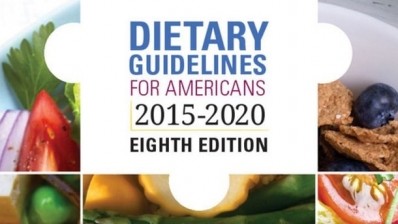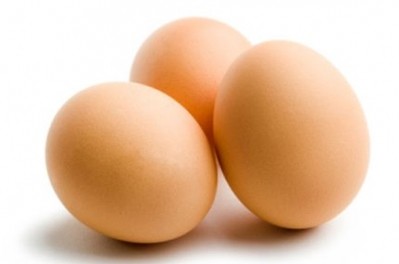Anti-egg campaign wants 2015 Dietary Guidelines to retain recommendation to limit cholesterol

Late last month, the organization, which supports a vegetarian and vegan lifestyle, erected six billboards in Texas that declare “#CholesterolKills” and features a giant cracked egg and the interactive website address TheTruthAboutEggs.com. www.thetruthabouteggs.com
The website features a carton of a dozen eggs which when hovered over display negative statements about eggs, including claims that 60% of eggs’ calories are from fat and that eggs can increase the risk of diabetes 68%, heart disease 19%, prostate cancer 81% and colon cancer by nearly five times.
The website, and a letter sent by PCRN to Rep. Michael Conaway (R-Texas) Oct. 29, single out eggs because they are the leading source in America of cholesterol, which is “as big a health threat as ever,” Neal Barnard, PRCM’s president, told FoodNavigator-USA.
He explained that the goal of the billboards and letter to the Texas Republican is to stop “special interests seeking to remove disease-fighting cholesterol warnings’ from the 2015 Dietary Guidelines.”
To many Americans’ confused delight earlier this year, the Dietary Guidelines Advisory Committee suggested the government drop the long-standing recommendation to limit cholesterol intake.
The committee explained available evidence shows no appreciable relationship between consumption of dietary cholesterol and serum cholesterol, and that cholesterol is not a nutrient of concern.
For support, it pointed to a report by the American College of Cardiology that found research conducted between 1998 and 2009 is unclear on any link between dietary cholesterol and disease.
The recommendation prompted many Americans to start “cracking celebratory eggs in omelets and fry pans, but that is a serious mistake,” Barnard said.
He explained that 90% of recent research on dietary cholesterol intake and blood cholesterol was funded by the egg-industry, which has a vested interest in uncoupling the food from disease risk to increase sales.
“There are many ways to manipulate findings,” such as using a small subject sample so the results are not significant or comparing the impact of eggs on cholesterol to that of sausage to make the impact appear less significant, Barnard said.
The Egg Nutrition Center denies allegations its funding swayed scientists or the research was manipulated.
“We believe our research process is above reproach. We work with top researchers from top universities in a credible and transparent manner. The control of both study design and the research itself remain with the scientific investigators, not with ENC. Written agreements specify that the investigative team has the freedom and obligation to attempt to publish findings, regardless of the outcome,” Mitch Kanter, executive director of ENC told FoodNavigator-USA.
“Further,” he added, “research supported by ENC that has shown no appreciable relationship between egg consumption and adverse health outcomes has been corroborated by numerous other studies.”
But as is often the case with science, other studies counter the findings. Barnard pointed to two recent studies that highlight the dangers of eggs and cholesterol.
One appears in the journal Atherosclerosis and found that participants who ate the most eggs had an 80% higher coronary artery calcium score than those who ate the least eggs. The second study, published in the Canadian Journal of Cardiology, found people who ate the most eggs were 19% more likely to have heart problems.
Even if the billboards, website and letter to Rep. Conaway do not result in the 2015 dietary guidelines maintaining the recommendation to limit cholesterol, Barnard hopes the campaign will help the public see that “eggs are not health foods.”















